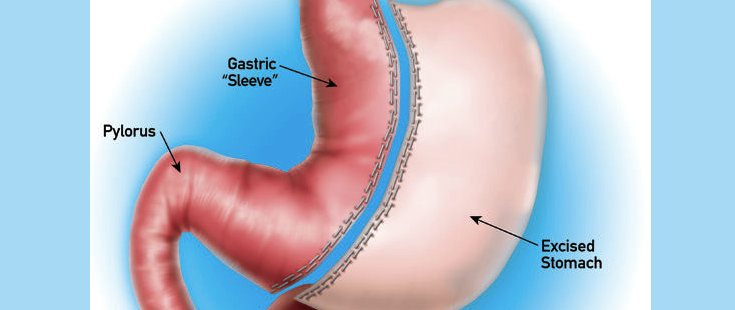The gastric sleeve, or sleeve gastrectomy, is a procedure that we are asked about sometimes. It is a newer weight loss surgery option, and one that Dr Shayani has given serious consideration to offering at his Chicago practice. Dr Shayani has answered some FAQ’s about the gastric sleeve here.
Why do you favor gastric banding as the preferred primary weight loss option for most of your patients?
Over time, I have come to appreciate adjustable gastric banding (Lap Band surgery) as the ideal surgical procedure for most of my patients: It is associated, by far, with the lowest incidence of serious complications. But more importantly, given the adjustable nature of the operation, the effects of the gastric band can be tailored based on the needs of individual patients; no two patients are alike and therefore it is vitally important to offer a surgical procedure that can be individualized based on the needs of each given patient.
I’ve heard that people lose a lot of weight quickly with the sleeve. Is that true?
Each bariatric surgical procedure has its pluses and minuses. As for the gastric sleeve, the most attractive aspect of the operation is its very impressive early results (first 12 months). However, given the average age of a typical bariatric patient (mid 40’s), all bariatric procedures should be judged by longer-term results (minimum of 5 years if not longer).
What is long-term weight loss like with the sleeve vs gastric banding?
As we’re starting to see the longer-term results of the sleeve, it is becoming more and more obvious that sleeve patients may experience enlargement of their gastric sleeve, which leads to increased caloric intake and weight regain. Unlike gastric banding patients who can have their bands indefinitely adjusted (tightened or loosened) to get back on track, with sleeve gastrectomy, once weight regain starts there is no easy way to reverse the process. It is also worth mentioning that the incidence of serious complications following sleeve gastrectomy is at least equal to that for gastric bypass and significantly higher than that for gastric banding.
The outcome of gastric banding is mostly dependent on the aftercare and the education provided for the patients. After over 10 years of offering gastric banding to my bariatric patients, I have come to appreciate that given the highly personalized care that we provide to each patient post-operatively, the outcomes for our gastric banding patients rival those seen with most other bariatric procedures (if not better) over the long run.
If you have further questions or would like to schedule a consultation with Dr Shayani, please call us at 630-468-2545.






